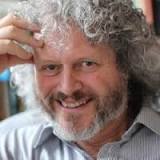Lifetime
Born: 1952, Sussex, UKLinks
http://www.philipcarr-gomm.comAbout
Biography:
Philip Carr-Gomm was born in London, raised in Notting Hill Gate, and educated at Westminster School and University College London. His father was Francis Eardley Carr-Gomm, brother of humanitarian Richard Carr-Gomm.
He met his first spiritual teacher, Ross Nichols, the founder of The Order of Bards, Ovates and Druids, when he was 11. He began studying with him when a teenager, and joined the Order when he was 18. He studied meditation with Olivia Robertson in Ireland, who later founded the Fellowship of Isis, and in his twenties he founded The Esoteric Society in London, which organised journeys for members to Bulgaria and Egypt, and hosted talks by well-known authors such as Gareth Knight, W. E. Butler, and Arthur Guirdham.
In 1975 Nichols died, and Carr-Gomm followed a Bulgarian teacher, Omraam Mikhael Aivanhov for seven years, giving talks on his teachings and helping with the translation and publishing of his books into English. He also travelled to Bulgaria and studied the work of Aivanhov's teacher, Peter Deunov, visiting Sofia annually for fourteen years, teaching Deunov's Paneurhythmy dance in England and at Findhorn in Scotland. In his thirties he turned to a study of psychology, taking a BSc degree at University College London and Jungian analysis, with plans to become an analyst. On discovering Psychosynthesis, he trained instead as a therapist at the Institute of Psychosynthesis in London and began a private practice.
In 1988 he was asked to lead the Order of Bards, Ovates and Druids. He organised the Order's teachings into a distance-learning course, and edited Nichols' Book of Druidry with John Matthews. Since that time, the Order has grown to become the largest Druid teaching order in the world, with Professor of History Ronald Hutton writing that 'the OBOD correspondence course arguably represents one of the major documents of British spirituality from the late twentieth century'
